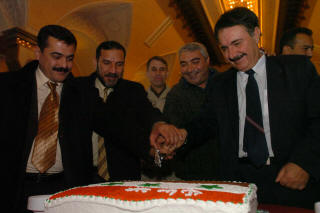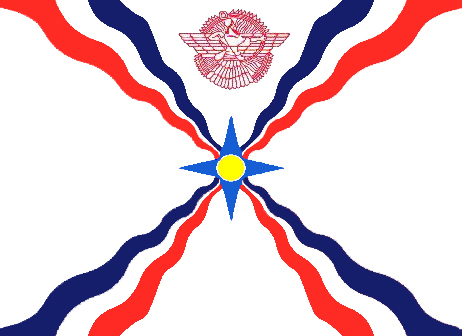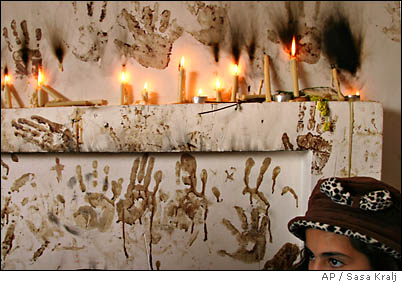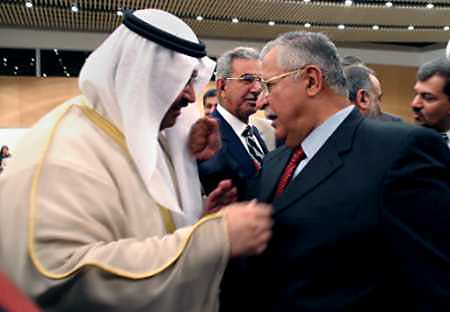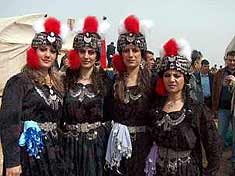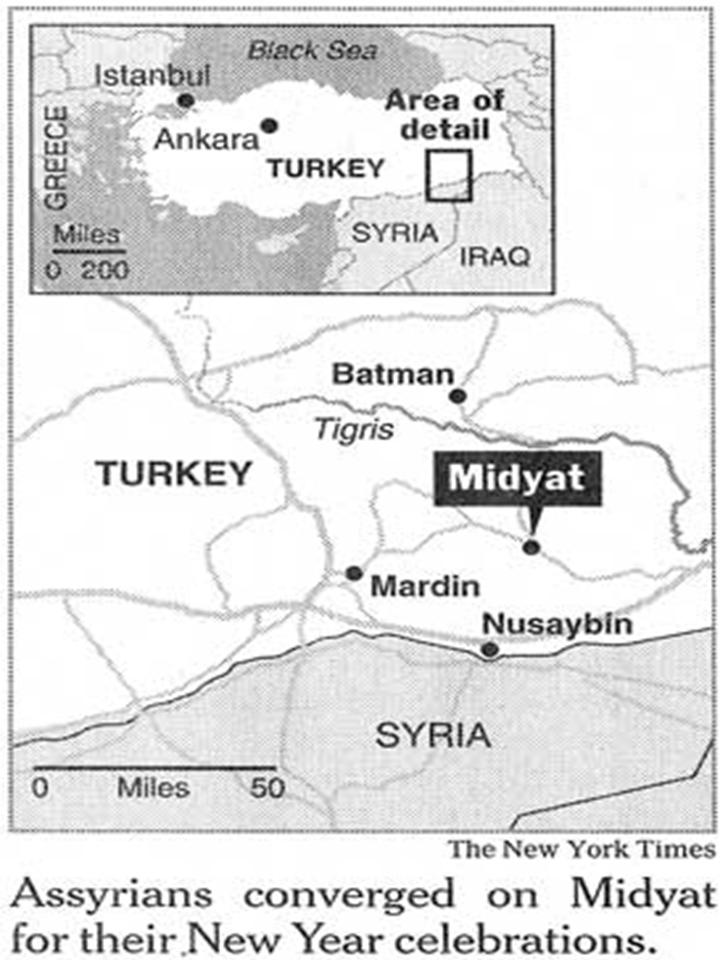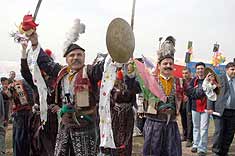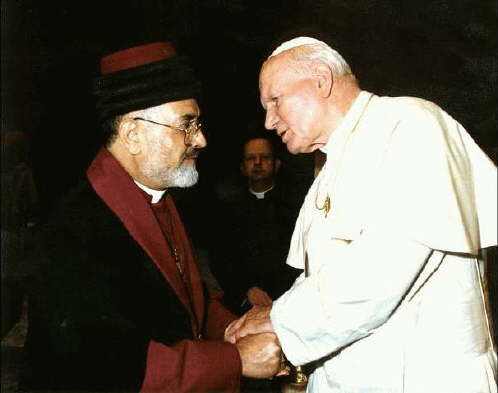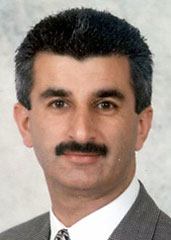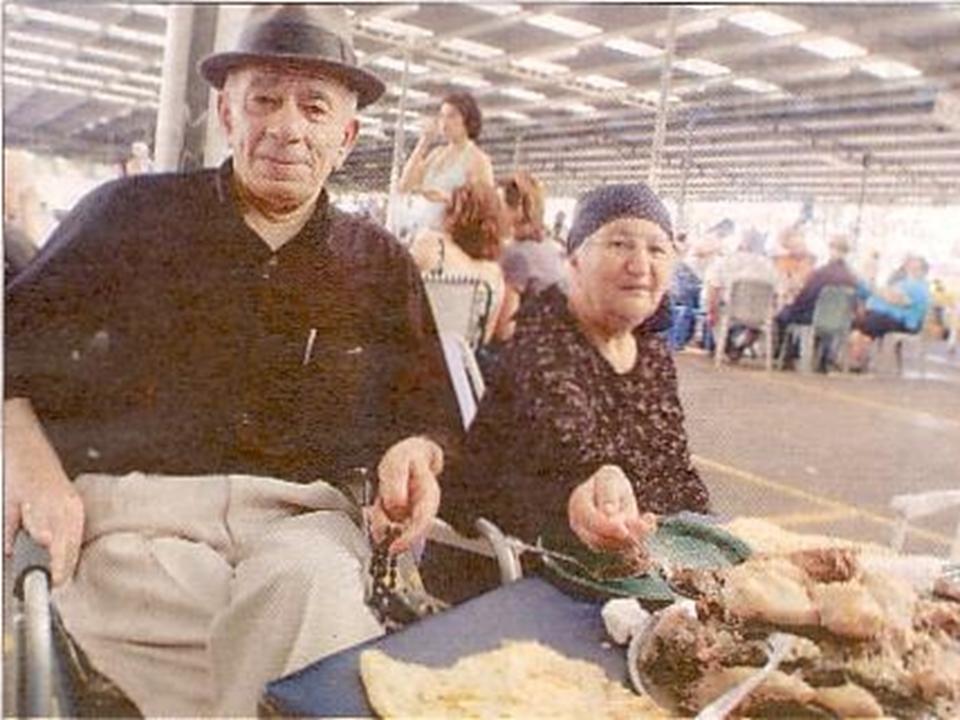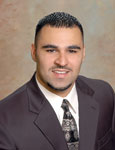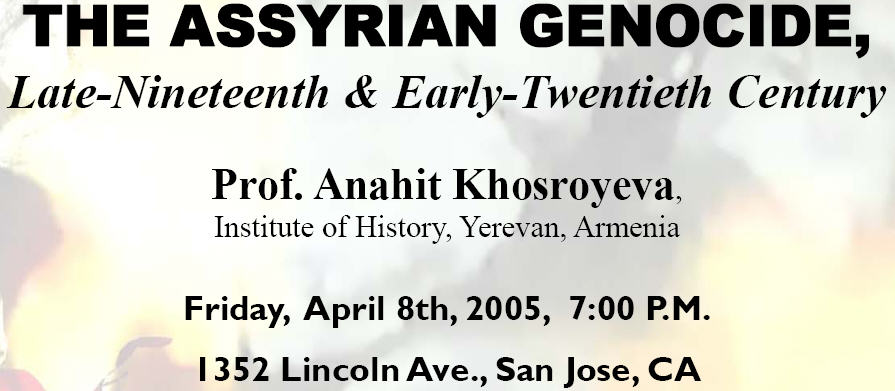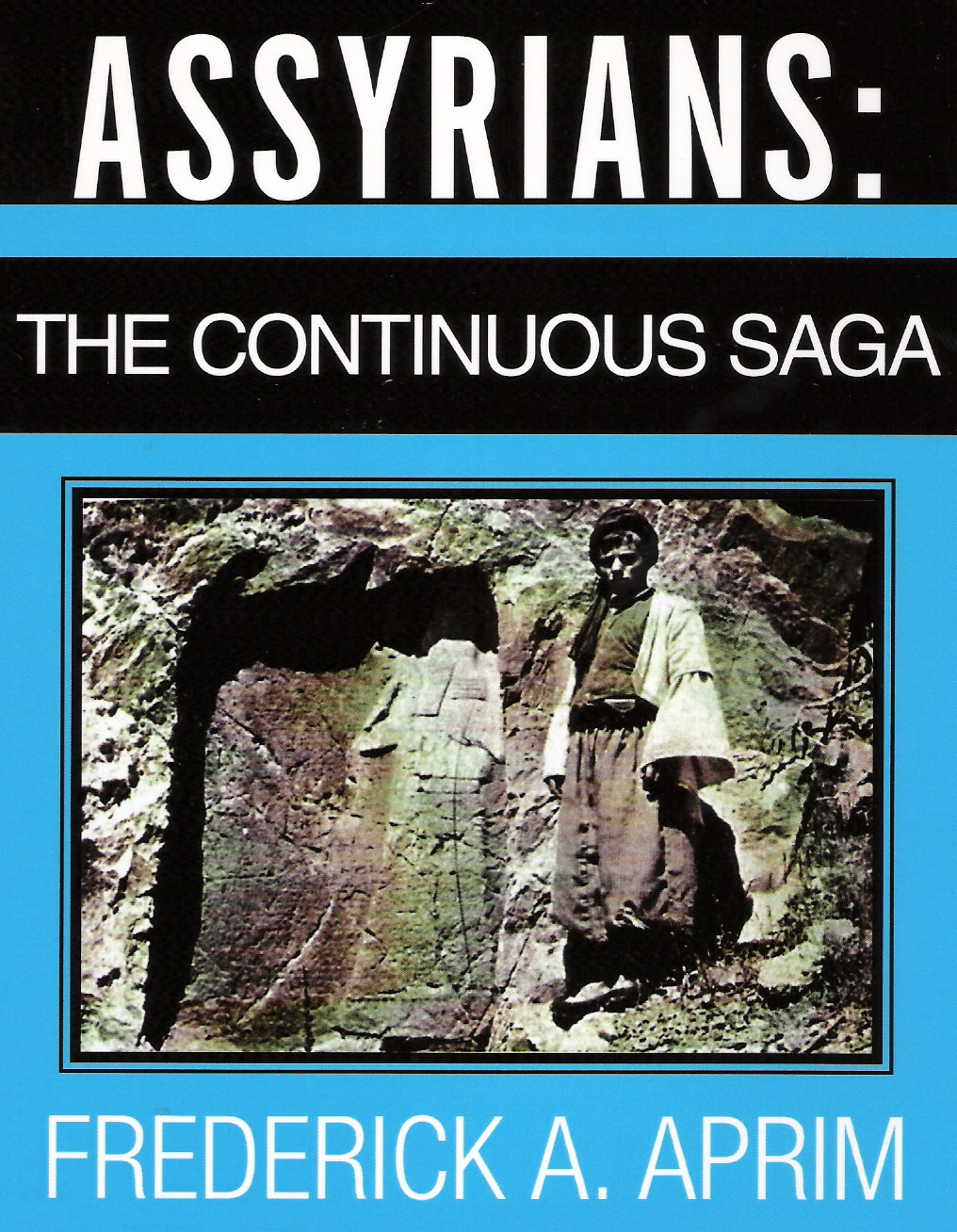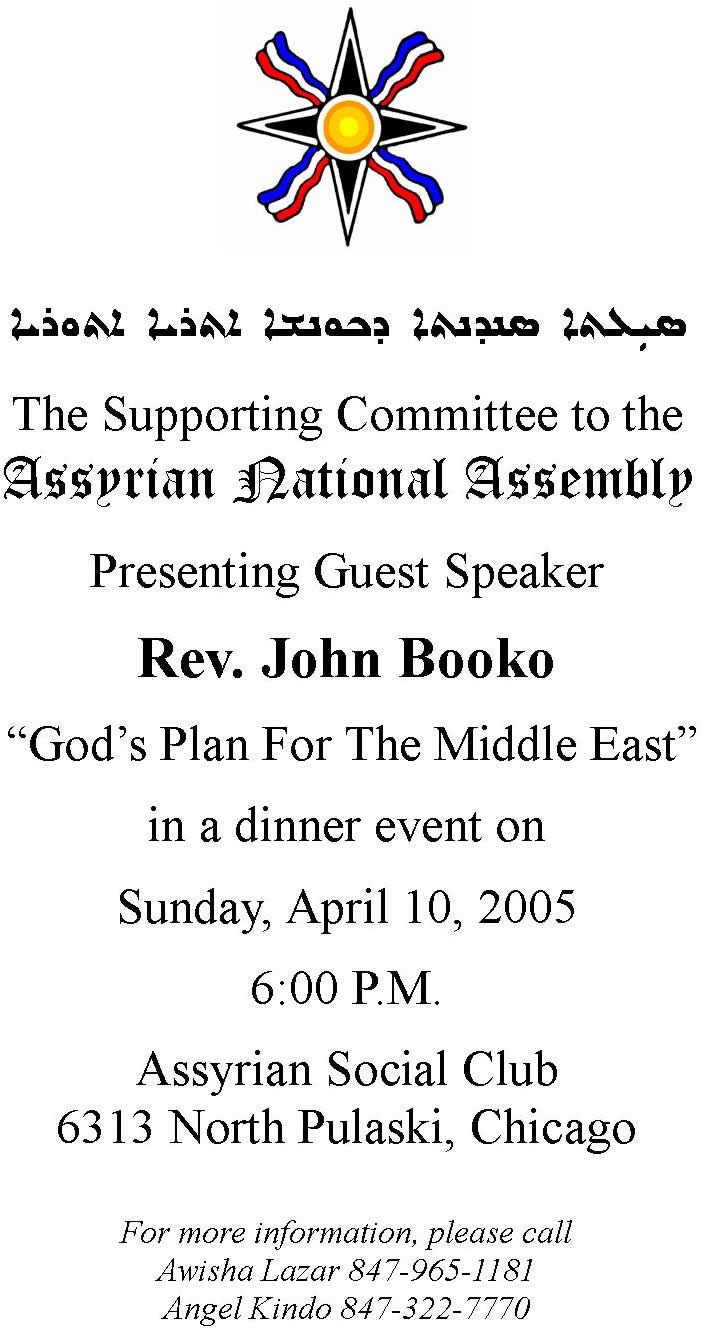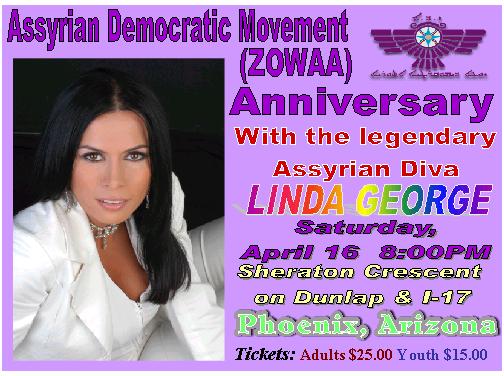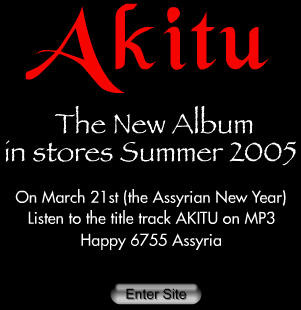Book Review: Assyrians, The Continuous Saga by Frederick A. Aprim
|
Assyrian Continuity from Fall of Nineveh to Modern Times / 309 pages
Hard Cover $30
Paperback (Soft Cover) $20
Price includes shipping and handling.
Send money orders (preferred)
or personal checks to:
Fred Aprim
P.O. Box 446
Hayward, CA. 94543 USA
|
Grace Yohannan, Ed.S.,
Communications Professor
Valencia Community College
Orlando, Florida
Shlama, My Fellow Assyrians!
Don’t waste your money on the video The Last Assyrians. Instead, purchase a copy of Fred Aprim’s Assyrians: The Continuous Saga; even the title is uplifting and promises a second volume to come.
The book comes with a warning, however; it is not for the fainthearted. Aprim painstakingly traces not only our historical background but also the etymology of the word Assyrian in the first two chapters worthy of any linguistic scholar. Drawing upon his multilingual background, Aprim was able to consult not only English language sources but also modern Assyrian and Arabic to produce the quintessential, definitive claim for our identity, our language, and our homeland. The periodicals and bibliographic entries are extensive and complement the numerous endnotes that provide irrefutable documentation of who we continue to be.
Aprim traces our identity before Christianity, our embracement of Christ, the influence of St. Ephrem (Mar Aprim), our struggles with our Muslim neighbors and governments, and our betrayal by the British and the Kurds, as if anyone who lost relatives in the genocide could ever forget. To an Assyrian, Aprim reaffirms all I hold dear and calls for unity among the various religious factions to which Assyrians belong; to someone who is unfamiliar with our race, he provides a factual, indisputable history of our people.
As the reader works through Assyrians: The Continuous Saga, he is rewarded with renewed pride in his heritage, of the Assyrian claim to Mesopotamia, to a commitment to let the world know we are not dead, we are not the “last” of our race; we are alive and well and fighting! Assyrians: The Continuous Saga is worthy of our time to read and absorb its message.
As Fred promised in his inscription of my copy of Assyrians: The Continuous Saga: “Because Assyria shall rise.”
A Letter to Dr. Ibrahim al-Jafary on Population Transfer from Kirkuk
Abbas Ali
Professor and Director
School of International Management
University of Pennsylvania
It is with a great sadness that I read the news report today stating that you, along with the United Iraqi Alliance, will transfer 80,000 Iraqis from their homes in Kirkuk to other areas in Iraq. As you well know, this is an ethnic cleansing and constitutes a threat to democracy and freedom in the new Iraq. In open and civilized societies matters related to the future of the country and the welfare of its people must be debated openly and be transparent. Indeed, ethnic cleansing is against international law, morality, and human dignity.
It is understandable that you are under pressure to form a government and that you have an intense desire to be the next prime minister. It is also understandable that you have to heed to the instruction of the occupying power. Nevertheless, before agreeing on a strategic issue which is of concern to all Iraqis, you have to survey the wishes of the Iraqi people through a general referendum and full participation of all Iraqis.
As you well know, during 1963-1988, the guerilla war and the armed militias in the north had forced about 300,000 to 400,000 Chaldeans and Assyrians to leave their homes and settle primarily in Baghdad - especially in the Bataween and Baghdad Al-Jadeda neighborhoods. Also, Armenians and Efeli Kurds resettled in Baghdad and other towns in the central and south parts of the country. What are you going to do to them?
Historical precedents and the experiences of other countries indicate that there are three options that deal with the movement of people within their own countries:
- The Fascist Approach. This is an ethnic cleansing and has been utilized by the Nazis and extreme nationalist groups and involves the whole transfer of people because of ethnicity or religious belief. This option is against civility and decency as it disregards the wishes of the people being affected.
- The America's Approach. This is called the melting pot approach where people from different ethnicities and religions have the right to locate in any part of the country. They have, however, to speak the language of the land and subscribe to Anglo-Protestant culture. Otherwise, they will not have easy access to political and economic opportunities. President Bush strongly believes that this approach contributed significantly to making the United States an attractive place for people from all over the world.
Professor Samuel Huntington wrote that this approach is what makes the U.S.
a great country ( see his American Creed article for detail).
- The Civilized Approach. This option gives the citizens of a country the right to live in any part of the country as they wish. People are protected by a constitution, and discrimination is not tolerated.
You have a moral responsibility to defend the integrity of Iraq and not to tolerate fascism and extremism. The fascist ideology during Saddam era led Iraq to tragedies and disasters. The new form of fascism is a threat to the existence of Iraq and to the freedom of liberty of its people.
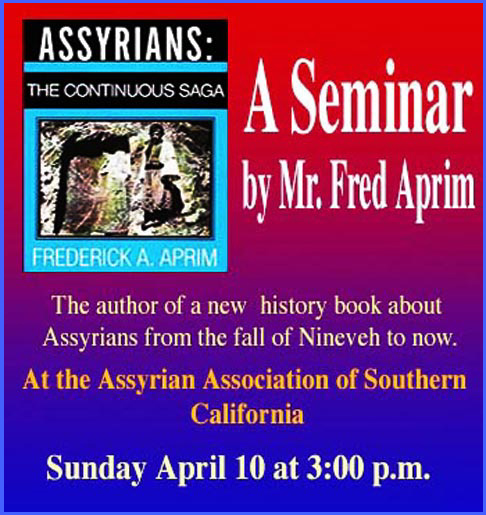
The Christians' and other Religions Endowment Bureau of Iraq
Fred Aprim
California
The following information was extracted from an interview by ankawa.com with Mr. Abdulla Hirmiz Jajo al-Nofalli, President of the Christians' and other Religions Endowment Bureau of Iraq.
The Iraqi Ministry of Endowment, Arabic "Wazarat al-Awqaf" (a ministry entrusted with government supervision of religious sectarian estates, Sunni and Shi'aa for example) was created in late 1970s. Soon after, the Iraqi Government planned to fully control the Christian estates by enlisting all clergymen under its payroll. The Christians strongly rejected the government offer as they realized what the real government intentions were. However, small division in the ministry remained to oversee the affairs of the Christians in Iraq.
Waqf and Awqaf is that property that is endowed by its owner to a group of people, a sect, etc. of his/her choice in order to use it as a praying place and so forth. With time, groups or sects accumulated many properties and lands that were called "waqf." Officially, the head of a particular sect has the legal ownership of such properties. After the appointment of any head of church, he receives a judgment or order from the appropriate courts naming him as the legal owner of his sect's properties, which means that he alone is invested with full powers and unrestricted rights of disposal of such properties. Next, the highest executive body in Iraq will issue a decree in that regard. However, there is a clause where any sale of endowed "waqf" property must be for the benefit of the sect involved, such as the sect is going to acquire a better property. Therefore, by law, the various churches "waqf" in Iraq belong to the corresponding Christians sects.
With the fall of the Ba'ath regime and the efforts to establish the new government, the Iraqi Governing Council did not reach an agreement about who the Minister of Endowment should be. Therefore, in August 2003, the ministry was abolished all together and three bureaus were introduced instead as such:
1. The Shi'aa Endowment Bureau
2. The Sunni Endowment Bureau
3. The Non-Muslims Endowment Bureau
In September 2003, Mr. Abdulla Hirmiz Jajo al-Nofalli was appointed as the president of the Non-Muslims Endowment Bureau. In February 2004, Mr. Yoarish Haido Dinkha from the Assyrian Church of the East was appointed as vice-president. Soon after, another decree appointed members from the various denominations as bureau consultants. They included:
1. Kamil Fawzi Danno, representing the Syrian Orthodox Church
2. May Younan, representing the Syrian Catholic Church
3. Abd al-Ahad Salim Augustine, representing the Latins
4. Audi Ali Sulaiman, representing the Yezidis
5. Mishael Ezarya, representing the Ancient Church of the East
6. Sa'aad Joseph, representing the Armenian Orthodox Church
7. Toma Zaki Zahron, representing the Mandeans (Subbiyeen)
8. David Kayya, representing the Anglican Patriotic Church
This new committee began its meetings, issued the structure and By-laws of the new bureau, and received a budget from the Ministry of Finance. Later, the bureau members presented a request to change the name of the bureau and that was granted. Today, the bureau is called "The Christians and other Religions Endowment Bureau" instead of "The Non-Muslims Endowment Bureau."
The Christians and other Religions Endowment Bureau is responsible for the affairs of 14 Christian and 3 non-Christian sects representing four religions. The Christian sects are:
1. The Chaldean sect
2. The Assyrian Church of the East sect
3. The Ancient Church of the East sect
4. The Syrian Orthodox sect
5. The Syrian Catholic sect
6. The Armenian Catholic sect
7. The Armenian Orthodox sect
8. The Latin sect
9. The Rum Catholic sect
10. The Rum Orthodox sect
11. The Coptic Orthodox sect
12. The Anglican Patriotic Church sect
13. The Anglican Assyrian Church sect
14. The Sabbath Church sect
The other three sects are:
1. The Jewish sect (They have yet to contact the bureau. It is reported that there are only 20 Jews left in Iraq)
2. The Mandean sect
3. The Yezidi sect
Each one of these sect has its own independent office that oversees the affairs of its members. Of course, there are other sects in Iraq like the Baha'iis, Kakaiis, and Shabak that are yet to be recognized by the government.
The Christians and other Religions Endowment Bureau office is today furnished very well. The bureau is provided with top of the line computers and a separate Internet connection. The bureau is planning to publish a magazine soon, a web page, and address ways and means to protect and preserve Christian historical places such as the Church of Beth Kokhe. The Christians participate in the religious activities of the Yezidis and Mandeans.
In 2004, an amount of 170,000,000 Iraqi Dinars was distributed on these sects to secure their places of worship. The bureau is physically in the process of training and employing guards at churches and monasteries. The bureau supported the publications issued by the various sects in addition to supporting Babylon College for Theology and Philosophy.
Halliburton Destroys Babylon
Katrina vanden Heuvel
The Nation
25 March 2005
The sterile term "collateral damage" justifiably brings to mind the human tragedy of war. But the devastating and wanton damage inflicted on the ancient city of Babylon by U.S.-led military forces gives another meaning to the term. In this case, we are witnessing violence against one of the world's greatest cultural treasures. Babylon's destruction, according to The Guardian, "must rank as one of the most reckless acts of cultural vandalism in recent memory." When Camp Babylon was established by U.S.-led international forces in April 2003, leading archeologists and international experts on ancient civilizations warned of potential peril and damage. It was "tantamount to establishing a military camp around the Great Pyramid in Egypt or around Stonehenge in Britain," according to a damning report issued in January by the British Museum.
The report, drafted by Dr. John Curtis – one of the world's leading archeologists – documents that the military base, built and overseen by Kellog, Brown and Root, a subsidiary of Halliburton, jeopardized what is often referred to as the "mother of all archeological sites." Helicopter landing places and parking lots for heavy vehicles caused substantial damage to the Ishtar Gate, one of the most famous monuments from antiquity. U.S. military vehicles crushed 2,600 year old brick pavement, archeological fragments were scattered across the site, trenches were driven into ancient deposits and military earth-moving projects contaminated the site for future generations of scientists. As several eminent archeologists have pointed out, while the looting of the Iraqi Museum in the first days of the war was horrifying, the destruction of ancient sites has even more dire consequences for those trying to piece together the history of civilization. Making matters worse, the base has created a tempting target for insurgent attacks in recent months. As Yaseen Madhloom al-Rubai reports in the valuable Iraq Crisis Report (No. 117), "It was one of the seven wonders of the world, but ancient Babylon attracts more insurgents than tourists these days."
"Turning Babylon into a military site was a fatal mistake," the Iraqi culture minister told Iraq Crisis Report. "It has witnessed much destruction and many terrorist attacks since it was occupied by Coalition Forces. We cannot determine the scale of destruction now. As a first step, we have completely closed the sites, before calling in international experts to evaluate the damage done to the [ancient] city and the compensation the ministry should ask Coalition forces to pay. We will run a campaign to save the city."
That campaign is finding allies among a growing network of archeologists outraged by the unnecessary destruction of an irreplaceable site. John Curtis, author of the British Museum's report, has called for an international investigation by archeologists chosen by the Iraqis to survey and record all the damage done.
The overall situation in Iraq is overwhelmingly a human tragedy but that does not exempt the U.S. authorities, who set up Camp Babylon, from the consequences of what The Guardian called an act of "cultural barbarism" – carried out in their name by a subsidiary of Halliburton. There must be a full investigation of the damage caused, and Halliburton should be made to offer whatever compensation is possible for the wanton destruction of the world's cultural treasure.
Turkish Nationalism Reflected in Southern Town's Growing Homogeneity
Courtesy of the Washington Post
5 April 2005
By Karl Vick
(ZNDA: Midyat) On the day the genies show up, seemingly everyone in this historic town in southeastern Turkey heads for the door.
"On Black Wednesdays, you have to go to picnics and stay outdoors," said Summeyye Saltik, 15, on the playground of the local primary school where attendance dipped, as it always does, on the second Wednesday in March. "If you're indoors, genies will visit your house."
"Because the houses used to belong to them and they come to claim them," added a classmate, Bushra Gokce.
"They can be anybody," explained a third girl, Serap Ceylan. "They can be Muslims or anybody who lived here before."
That makes the possibilities almost endless in Midyat, which over the centuries has been inhabited or visited by people of a vast assortment of faiths, including the Yazidis, the obscure sect that introduced the town to the springtime escapes of Black Wednesday.
But while the Yazidi wariness of house-haunting genies has spread to many other groups in the area, the number of Yazidis has dwindled considerably. Of about 5,600 Yazidis who lived in the area in the 1980s, only 15 are left.
Midyat, a town that predates Christianity and Islam, once reflected the deep diversity of a region where faiths overlapped and conquering armies advanced and retreated. Scholars say its very name may be a mix of Farsi, Arabic and Assyrian that translates as "mirror."
But what this town of 57,000 reflects these days is a growing sameness. The Armenian Christians who built many of the old city's medieval stone buildings disappeared in the early 20th-century conflict that Armenians and many historians have called genocide. The Assyrian Christians who long accounted for the majority in Midyat have been reduced to just 100 families.
As for the Yazidis: "They were not causing any problems, but it was still better that they left," said Nazete Koksal, an ethnic Kurd seated on a sofa under the arched stone roof of a house her husband, an Arab, bought from a Yazidi family.
"They're dirty," Koksal said. "Their religion is dirty. They pray to the devil. We pray to God."
Still, she expressed some nostalgia for the days before so many groups fled her city. "Before they left, we used to be friends," she said.
In some ways, present-day Midyat reflects the founding principles of modern Turkey. Rising from the ruins of the Ottoman Empire, an Islamic sultanate that tolerated religious minorities as second-class citizens, the Turkish republic was founded on a fierce assertion of national identity. The concept of Turkishness rooted the new nation-state firmly in the hills of the Anatolian peninsula once known as Asia Minor. But it also denied the notion of any other identity existing there.
More than 80 years after the republic was formed, anti-minority feelings can run close to the surface. Last year, an ultranationalist literally tore to pieces a human rights report on minorities before television cameras. In eastern Turkey this month, unemployed youths were hired to portray Armenians in a civic skit depicting a conflict with Turks that was more even-handed than history suggests; municipal workers reportedly had refused to take part.
Here in the southeast, official policy meant people who spoke Kurdish and called themselves Kurds were, officially, "Mountain Turks." Their eventual insistence on maintaining their ethnic Kurdish identity helped spark a separatist war that killed 30,000 people, most of them Kurdish civilians, during the 1990s.
The conflict took a toll on other minorities as well.
"We tried to be out of it," said Isa Dogdu, an Assyrian standing in the doorway of a church that dates from the 7th century. As a religious minority, however, the Assyrians felt pressure both from the Kurdish guerrillas and from Turkish Hezbollah, radical Islamic guerrillas whom the government secretly armed as a proxy force. When government officials showed up at the church, said Dogdu, a religious instructor, they asked why young people in its annex were not being taught in Turkish. Assyrians, who in the 1st century formed the world's first Christian community, still learn a version of Aramaic, the language Jesus spoke.
Persecution, Dogdu said, "was not done very openly, but sometimes it was deliberate. For instance, there were some murders of prominent persons. If you murder a prominent person, other people have fear."
Today, about 500 Assyrians live in Midyat. Sunday services rotate among the four churches that remain in the medieval splendor of the old city. In recent months, small groups of Assyrians have begun returning from abroad to build homes, mostly in isolated villages. But Dogdu's weary smile suggested the downward trend would not be easily reversed.
"When you have a majority population and it goes down to less than 1 percent, what do you think?" he said.
The exodus of the Yazidis was more stark. By official count, Turkey had 22,632 members of the sect in 1985. Fifteen years later, their numbers had dropped to 423. In the area around Midyat, the exodus was even more dramatic.
"In the last 20 years, everybody moved," said Mostafa Demir, 22, whose family left Midyat in 1990. "Nobody was really telling them to leave, but the relations were not that warm."
Centuries ago, Muslims slaughtered Yazidis by the thousands as devil worshipers. Yazidis, whose faith draws on several sources, including Zoroastrianism, believe the fallen angel who became Satan later repented, returning to grace after extinguishing the fires of Hell. Yazidis envision him as a peacock, a main symbol of their religion.
In modern Midyat, Demir said, their persecution was more apt to appear as mockery. Demir recalled merchants at the town market drawing a circle in the dirt around Yazidi customers. Yazidis, whose theology does not allow them to break a circle, would stand there indefinitely.
But things grew worse when the Kurdish rebellion erupted. Many Yazidis, who claim to speak the purest Kurdish, identified with the rebels. That made them targets of Turkish troops and Hezbollah, who "pushed the Yazidis out of here to get their lands," said Fars Bakir, an elderly Yazidi who lives in a mud-daubed house in a hamlet called Cilesiz, or "Without Suffering," in a lush valley bordering Syria.
As a condition for joining the European Union, Turkey recently passed new legal protections for minorities. But Bakir, who fled to Germany for several years, said he and his wife came home primarily because of homesickness, not faith in new laws.
Turkey differs with the European Union on the definition of minority, insisting on its definition of nationhood grounded in Turkishness. Baskin Oran, a University of Ankara political scientist active in minority human rights, discounted the new laws as "a revolution from above. It's more or less easy to change laws. But it is much more difficult to change the mentality of the people." |
